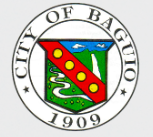Baguio City, located in the north of Manila -- the capital of the Philippines and the west of Luzon, is a city surrounded by mountains. It covers an area of 49 square kilometers and has a population of over 300,000. With cool climate and beautiful sceneries, it is hailed as the “summer capital” of the country and a famous tourist attraction. Around the city, there are abundant deposits of gold, silver and copper. Mining companies with a combination of government and private shares have been founded here. In addition, the city is also known for its carved handicrafts sold throughout the country and to Europe and America as well as Southeast Asia. Moreover, vegetable production is also one of its features. Many overseas Chinese there were engaged in agricultural vegetable production in the 1950s and 1960s. Baguio City, known as the Northern Education Center of the country, boasts flourishing culture and education. In the city, there are five colleges and universities, and more than forty elementary and secondary schools, which accommodate over 100,000 students accounting for half of the city's population. Its citizens have the habit of reading newspapers and periodicals. Every night, special cars are out to deliver newspapers. Baguio City is the venue for many national and international conferences in the Philippines.







